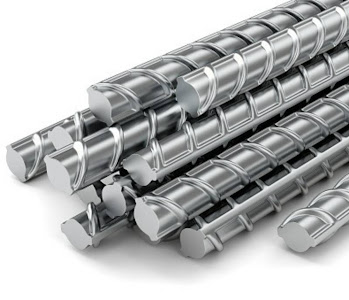The Manufacturing Process: How TMT Bars Manufacturers Ensure Quality
Raw Material Selection and Preparation
In the production of quality TMT manufacturers, a good selection of raw materials forms a prima facie. For steel of high pureness, high-quality iron ore, coal, and limestone need to be acquired. It is mostly practiced by the best India TMT bars manufacturer in using iron ore with a significant degree of refinement to decrease impurities as much as possible, and these impurities may enhance the influence of impurities on the final strength and flexibility of the TMT bars.
Primary Steel Making
These liquid irons are then moved to the steel-making furnace for further improvement. In almost all Indian TMT bars manufacturer in India, the EAF and BOF are used for the conversion of melted iron into liquid steel. At this step of deoxidizing for oxygen removal, aluminum or silicon are added for the quality improvement of steels.
This is important because the quality of liquid steel determines the mechanical properties of final TMT manufacturers, such as tensile strength, elongation, and ductility.
Continuous Casting Process
Once the steel is refined, the molten steel is cast into billets-a long rectangular blocks of steel. In the continuous casting process, liquid steel is fed into a machine known as a casting machine, which gradually solidifies the steel into semi-finished billets. For India-based TMT bars manufacturers, ensuring no cracks, voids, or inclusions in the billet phase is of utmost importance since these can compromise the quality of the final product.
Quality control checks are carried out in this level of treatment so that the barres meet high standards, especially regarding chemical composition that impacts head on the deformation behavior of the bar under stress.
TMT
The actual magic occurs during the Thermo-Mechanical Treatment(TMT manufacturers) stage. In this level of treatment, TMT barsmanufacturers in India acquire all their special properties, such as high strength, ductility, and high corrosion resistance. It works as follows:
Quenching:
Once the bars leave the rolling mill, they undergo a fast cooling process known as quenching. Bars are passed through a set of jets containing water, thus rapidly cooling the outer surface while forming a hard martensitic layer. Meanwhile, the core remains hot and soft.
Self-tempering:
As the core cools naturally, the heat from the inner core transfers to the outer surface, tempering it, hence giving the bar a tough, ductile core surrounded by a hard exterior.
Conclusion:
TMT bar manufacturing requires proper planning along with modern technology and stringent quality control measures. As there is a healthy rise in the demand for good quality steel, manufacturers of TMT bars in India tend to strengthen and improve the processes at their end to ensure the construction industry is provided with safe, strong, and cost-effective solutions. From a one-room flat to large infrastructure projects, TMT bars from genuine Indian manufacturers guarantee that safety and strength are provided to each structure.
.jpg)


Comments
Post a Comment